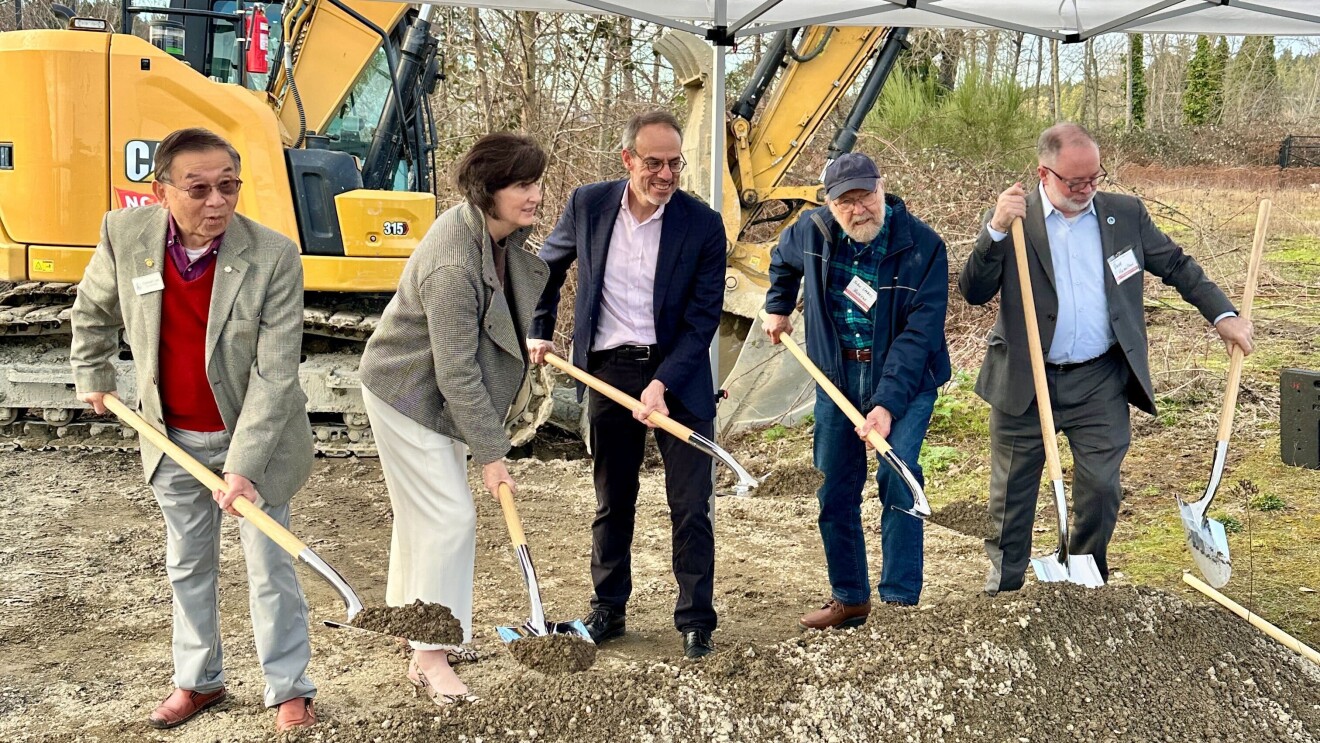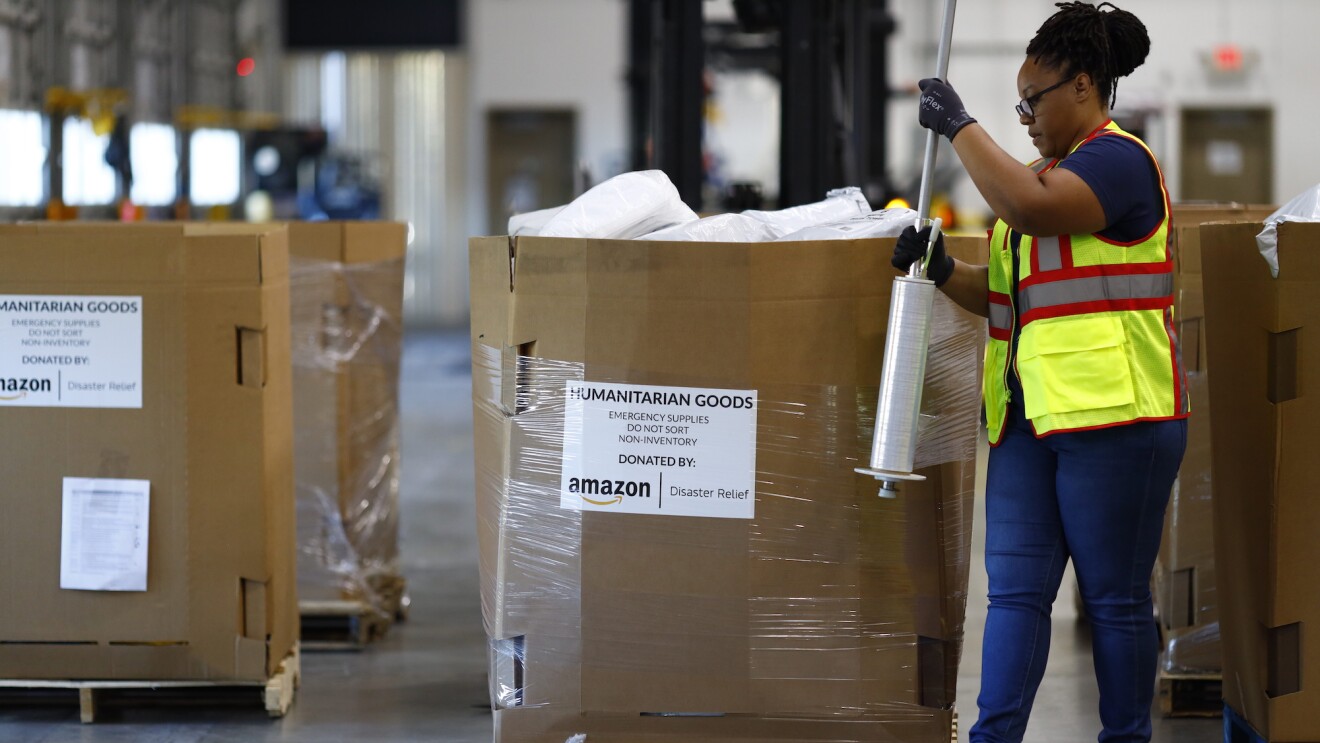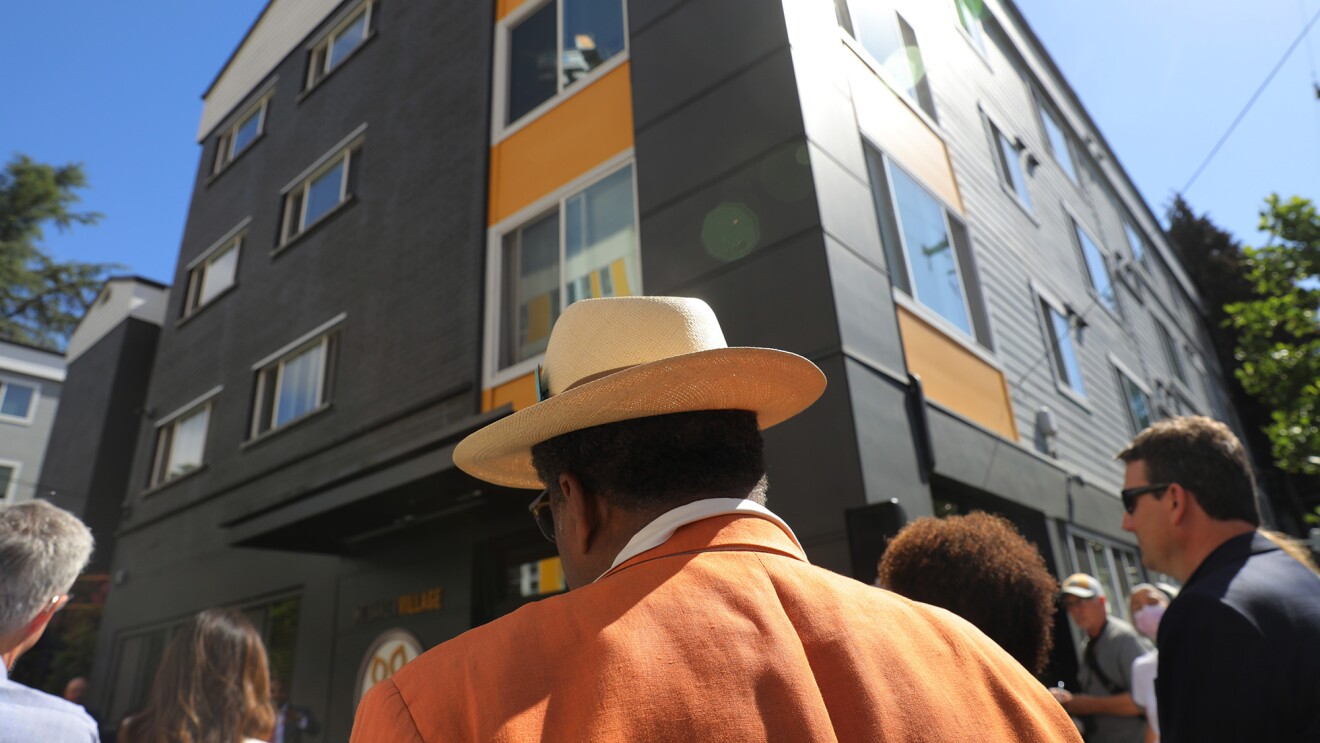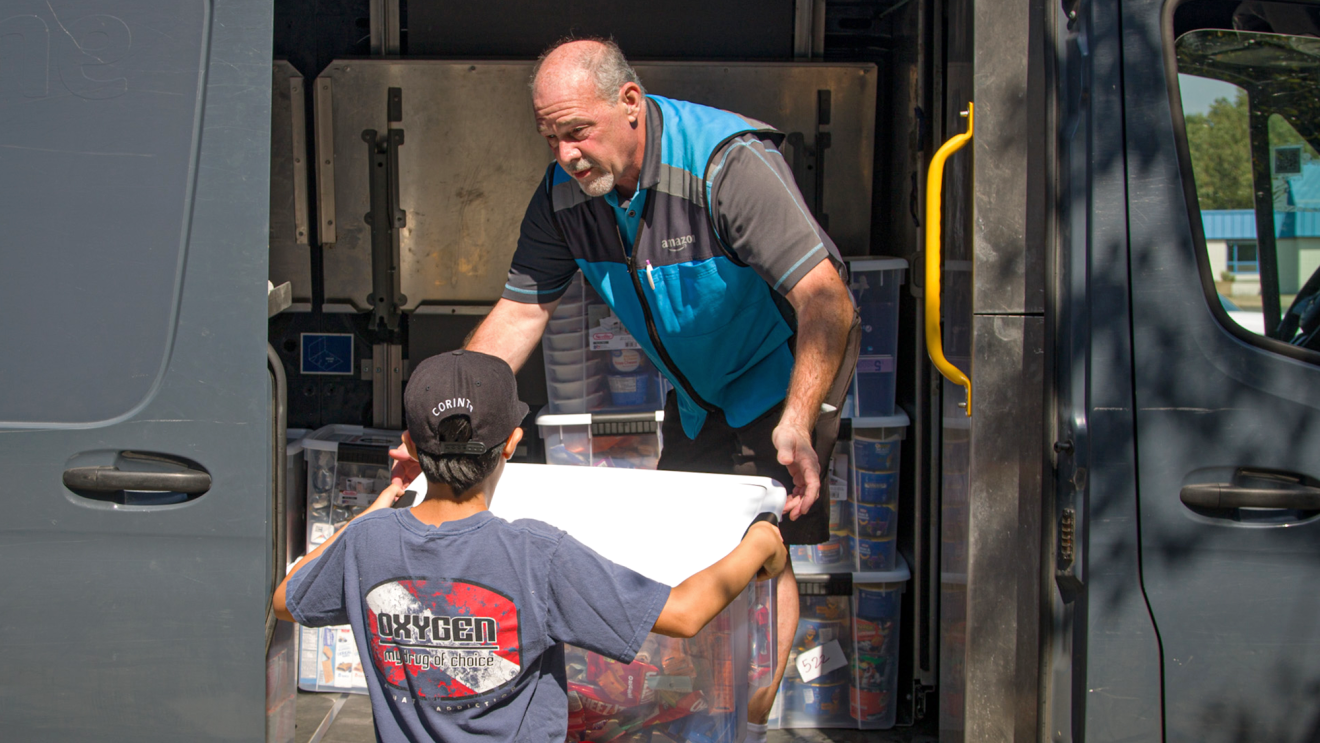Today, Amazon and Seattle Public Schools announced a new partnership to bring computer science and robotics to up to 30 Title 1 Seattle Public Schools as part of the Amazon Future Engineer program. Amazon is providing each of the schools with an Amazon Future Engineer Robotics grant to inspire the next generation of computer scientists, with a focus on students from underrepresented and underserved communities. Each of the schools will receive support to launch FIRST robotics teams, including teacher professional development to learn about robotics, support from Amazon to expand access to computer science education in their school, and a tour of an Amazon robotics fulfillment center in Kent, Washington. These up to 30 schools will join the 100 schools we announced in April as part of the Amazon Future Engineer Robotics grants program.
Read more below about the Amazon Future Engineer Robotics grant program.
01 / 08
Imagine being able to inspire the next generation of computer scientists. The Amazon Future Engineer program aims to do just that, partnering with FIRST to provide robotics grants to 100 schools serving students from underrepresented and underserved communities in 21 states, across the U.S. The Amazon Future Engineer Robotics Grants will provide support for schools to launch FIRST robotics teams, including teacher professional development to learn about robotics, an additional $10,000 from Amazon to expand access to computer science education in their school, and a tour of a local Amazon fulfillment center. Thousands of students will benefit from the program, beginning in the fall of 2019.
The Amazon Future Engineer program aligns well with FIRST’s mission to inspire young people to be science and technology leaders and innovators by engaging them in mentor-based programs that build science, engineering, and technology skills to students in grades K-12. Data from a 5-year longitudinal study of FIRST programs by Brandeis University shows FIRST robotics programs work for all youth with students across all demographic groups (gender, race, economic status, and geography) showing significant gains in STEM (science, technology, engineering, and math) knowledge, interest, career interest, identity, and STEM activity compared to their peers who don’t participate.
FIRST students are more likely to major in tech-focused science fields in college; by their second year of college, over 50 percent declare majors in engineering or technology. The impact on young women in FIRST is particularly profound. By their first year of college, female alumnae of FIRST are 3.6 times more likely to take an engineering course, and 1.9 times more likely to take a computer science course than female comparison students.
"Amazon is helping FIRST in our goal to make robotics teams and programs available in every school,” said Dean Kamen, founder of FIRST and president of DEKA Research & Development. “In FIRST, every kid on every team can go pro. They gain a hands-on learning pathway in technology, computer science and engineering that propels them forward and inspires innovation."
These students are the innovators of the future, and we’re confident that this hands-on experience provided by Amazon Future Engineer will inspire them in their academic pursuits and beyond.
Jeff Wilke - CEO consumer worldwide, Amazon
“The Amazon Future Engineer Robotics Grant is a game changer for middle and high school students throughout 53 KIPP schools around the country,” said Dave Levin, co-founder of KIPP Public Schools. “The generosity of Amazon will ensure more KIPP students than ever will have the opportunity not only to pursue successful careers in STEM, but help diversify the industry for future generations.”
“We can’t wait to bring thousands of students into Amazon’s fulfillment centers to show them the amazing technology operating behind the scenes,” said Jeff Wilke, CEO consumer worldwide, Amazon. “These students are the innovators of the future, and we’re confident that this hands-on experience provided by Amazon Future Engineer will inspire them in their academic pursuits and beyond.”
01 / 07
The Bureau of Labor Statistics projects that by 2020 there will be 1.4 million computer-science-related jobs available and only 400,000 computer science graduates with the skills to apply for those jobs. Computer science is the fastest-growing profession within the Science, Technology, Engineering and Math (STEM) field, but only 8% of STEM graduates earn a computer science degree, with a tiny minority from underprivileged backgrounds. Students from underprivileged backgrounds are 8 to 10 times more likely to pursue college degrees in computer science if they have taken AP computer science in high school.
Learn more about Amazon Future Engineer, and additional programs it offers students from childhood to career.
Trending news and stories
























